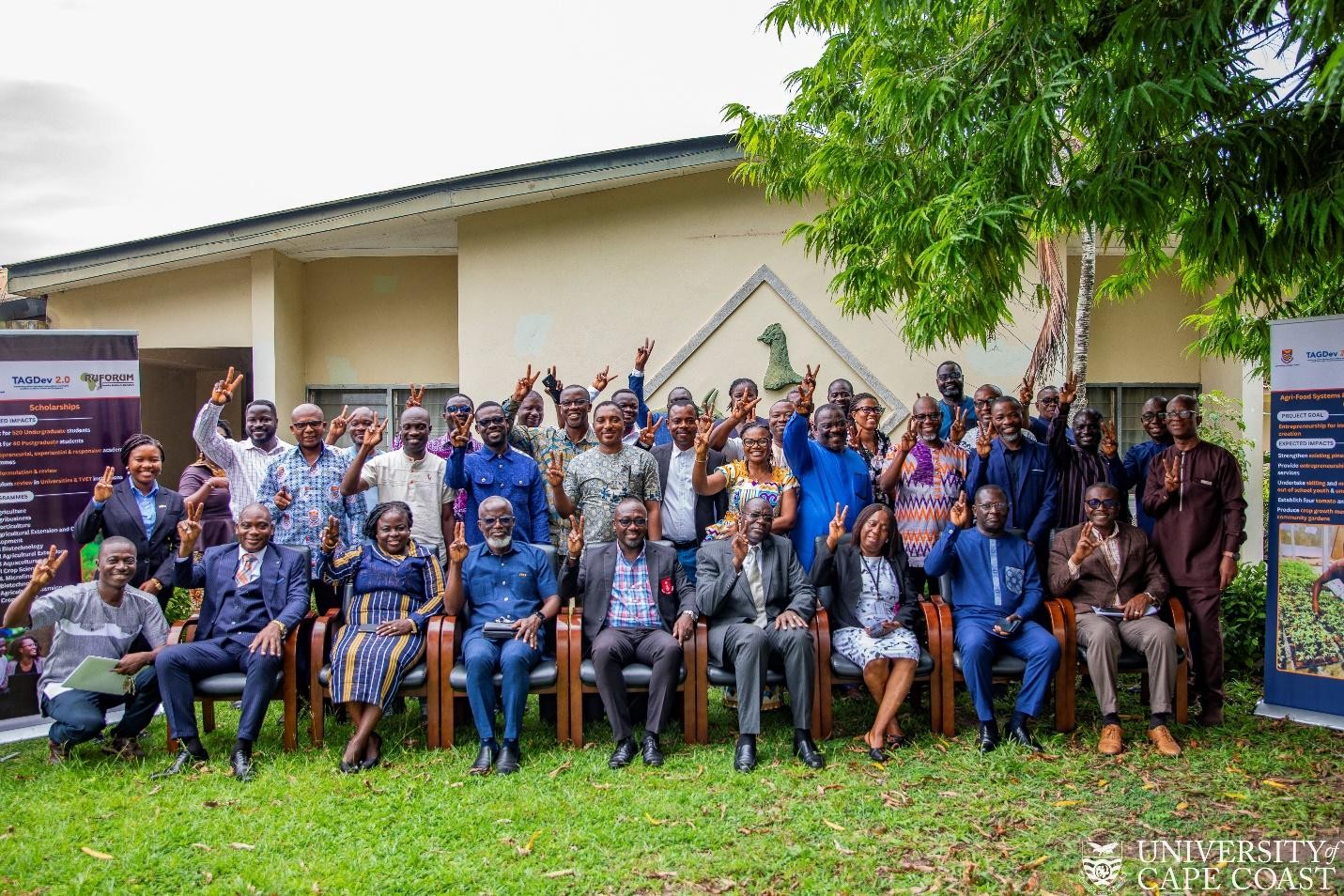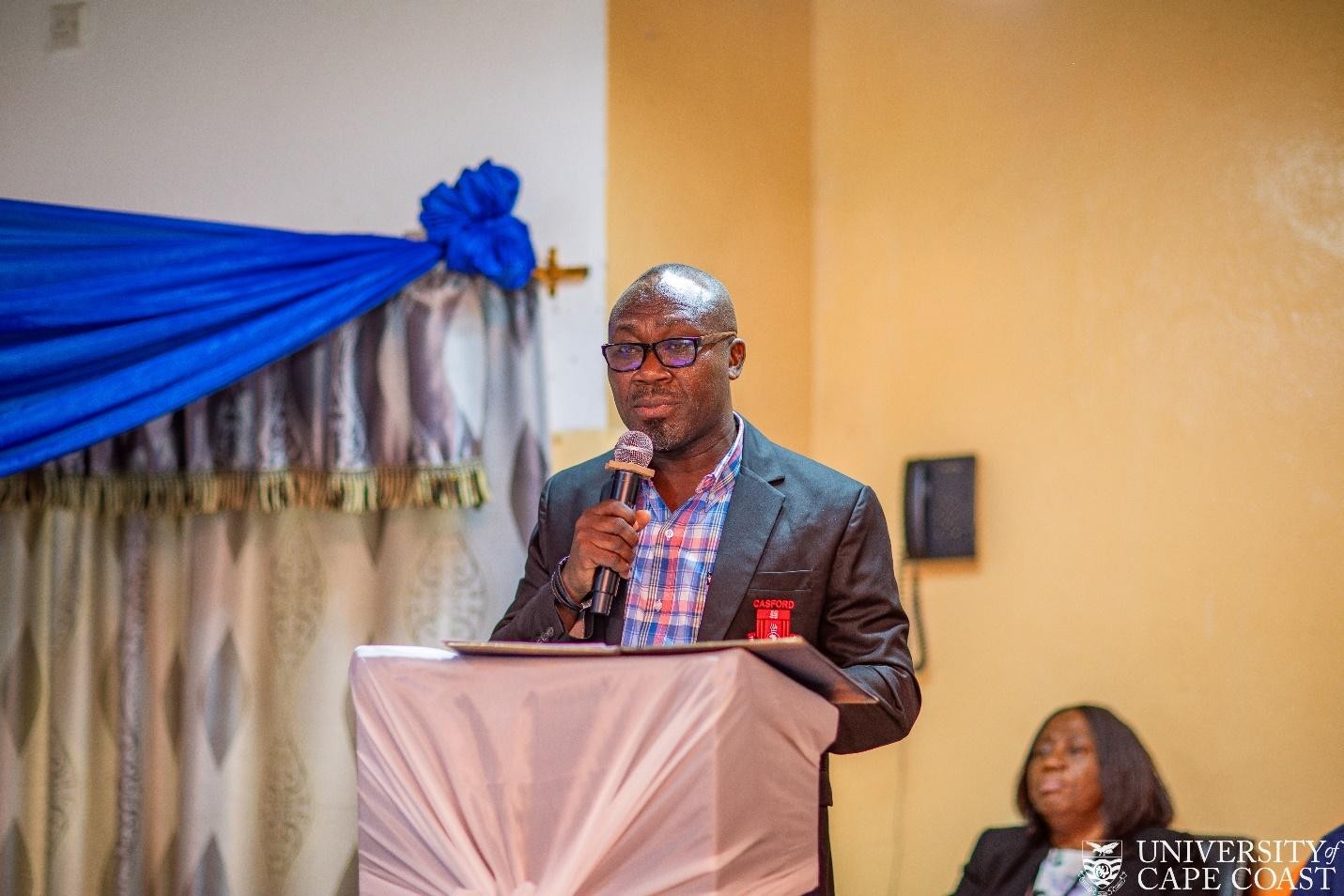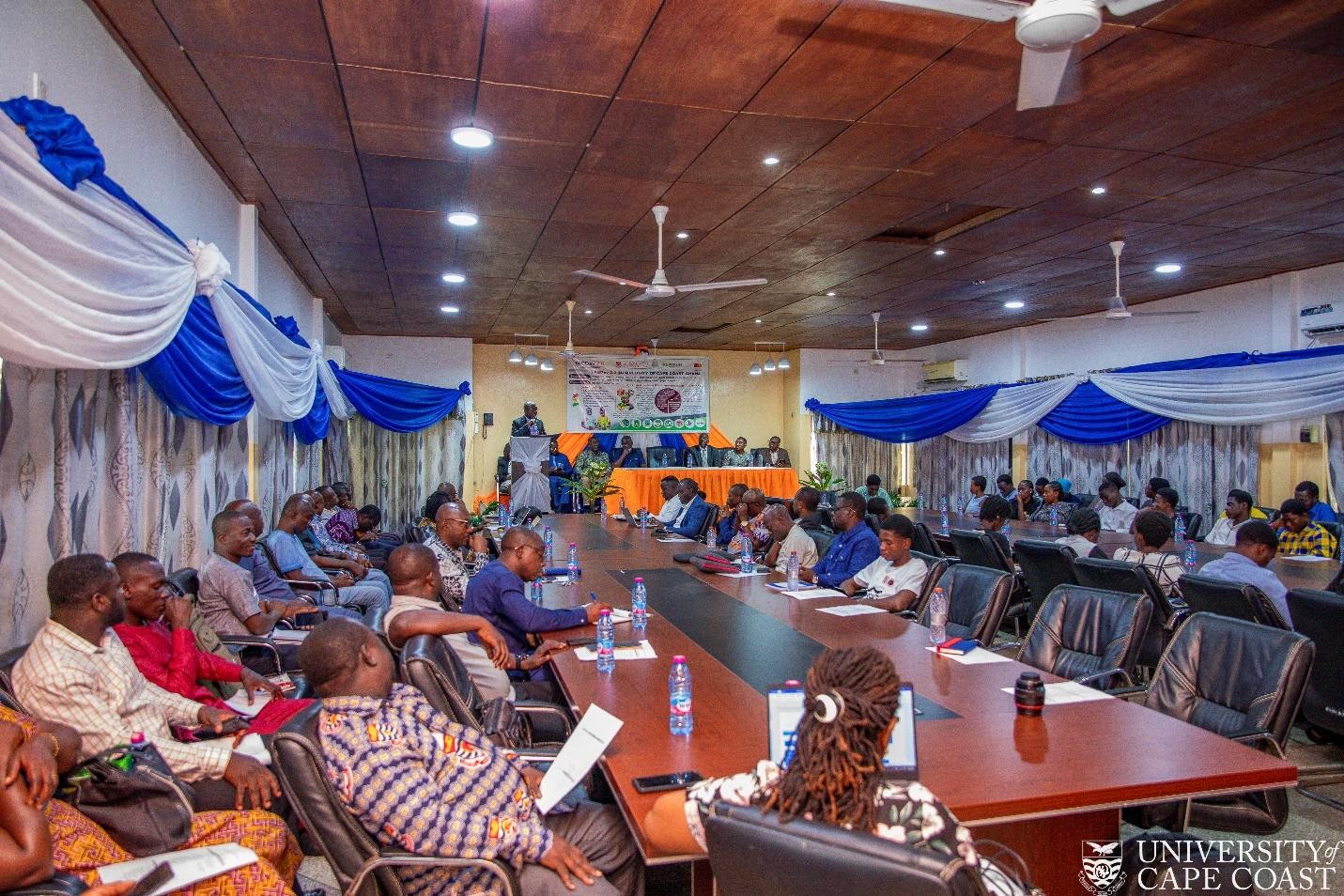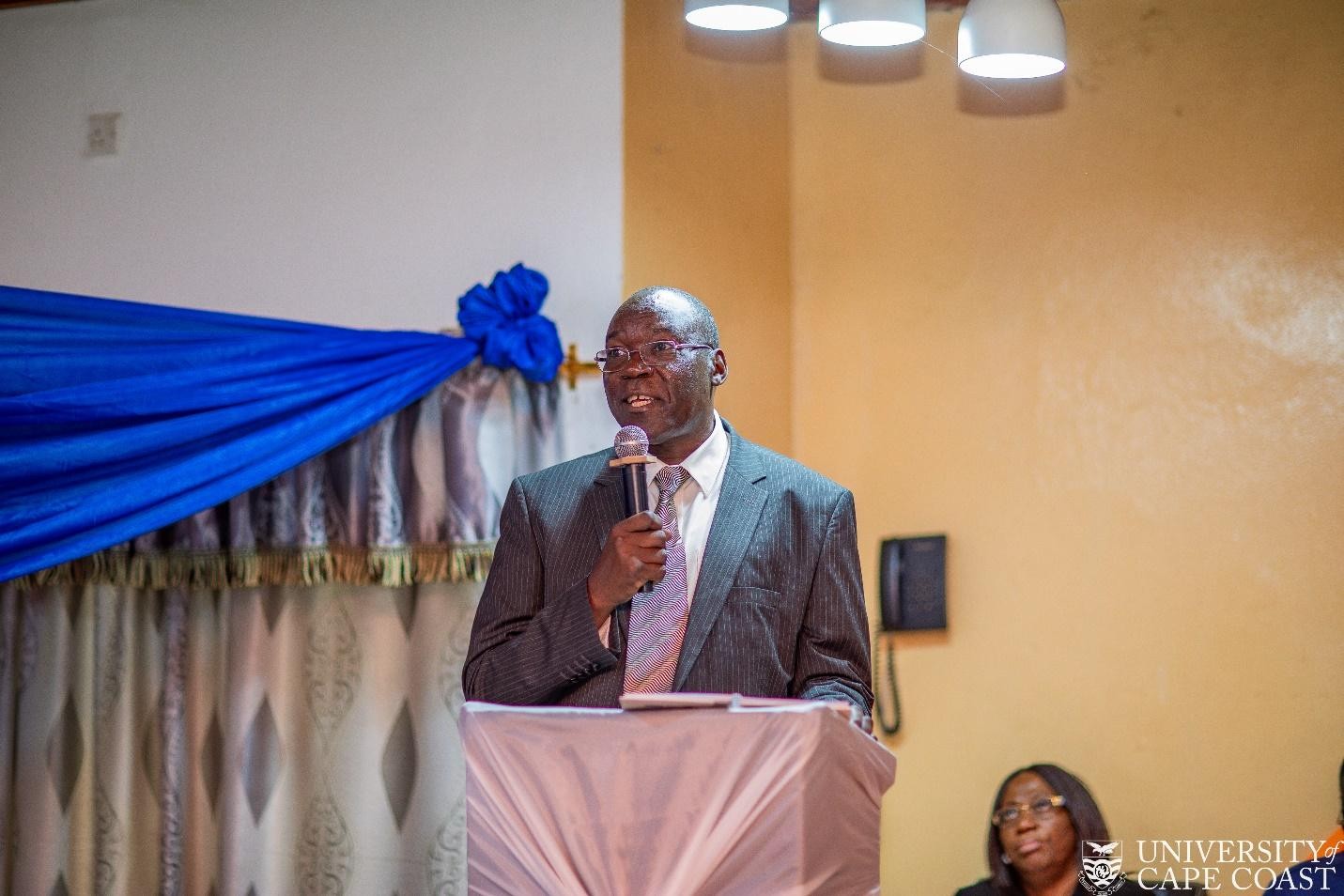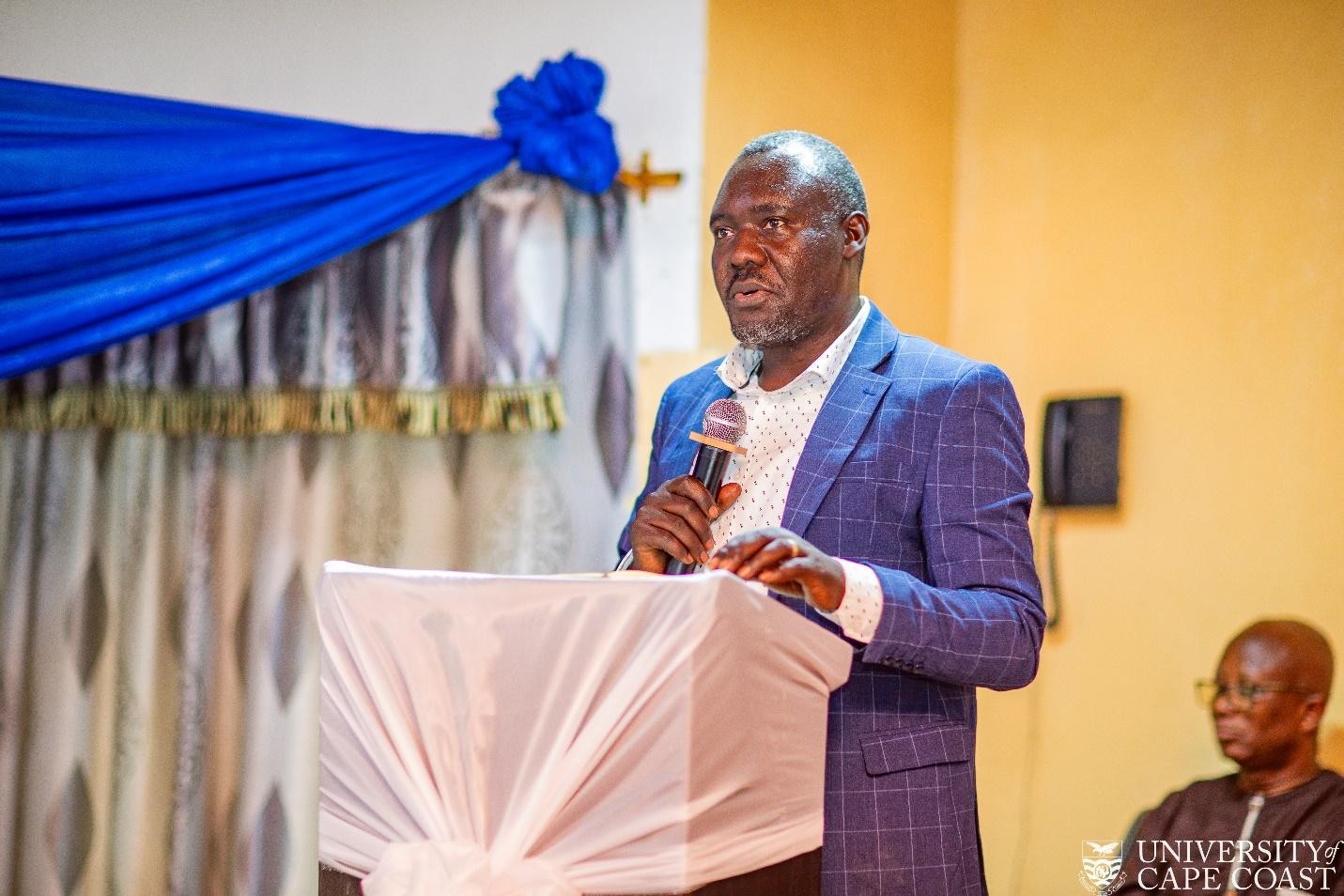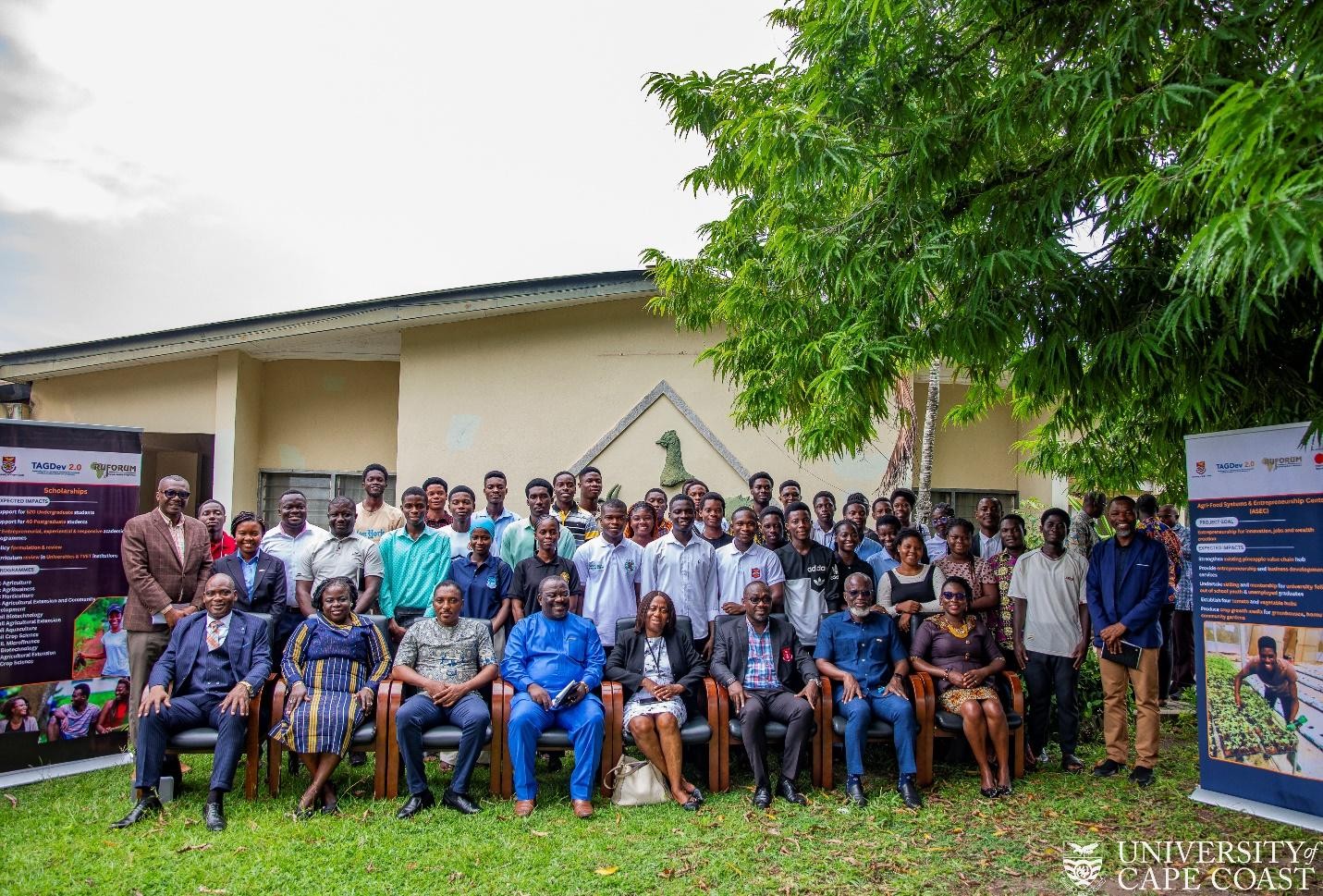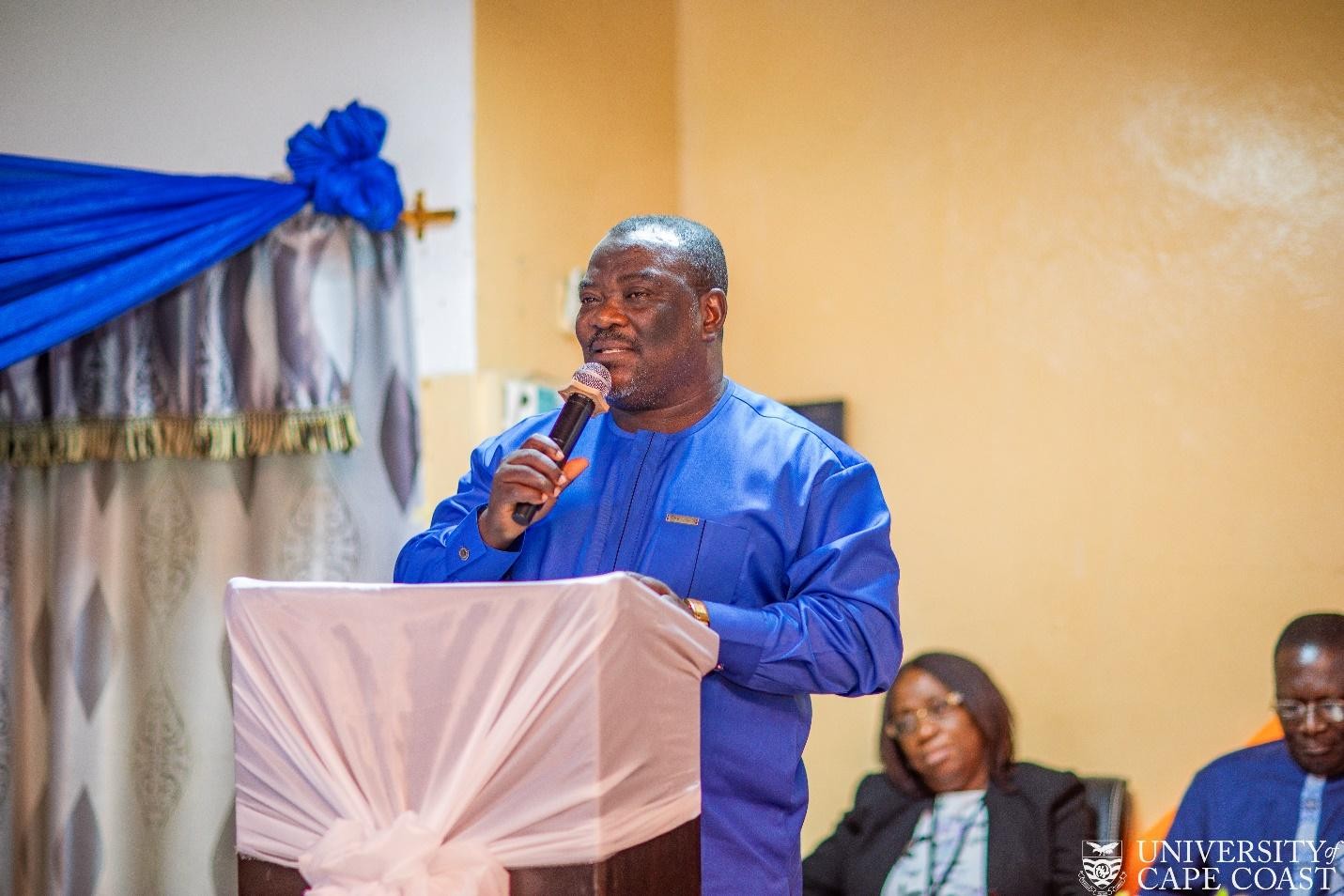The Transforming African Agricultural Universities to Meaningfully Contribute to Africa’s Growth and Development (TAGDev 2.0) programme, University of Cape Coast (UCC), has held a dialogue to chart a path towards transformative education that delivers sustainable impact across the African continent.
The dialogue, which was on the theme “Transformative Education: Moving from Conceptualization to Delivery for Impact for Mission Success”, brought together key stakeholders from academia, government, industry, and youth organizations. Participants included representatives from the University for Development Studies, University of Energy and Natural Resources, Asuansi Technical Institute, Adidome Farm Institute, Centre for Scientific and Industrial Research, the Ministry of Agriculture, Ministry of Trade and Agri-Business, Ghana Tertiary Education Commission (GTEC), private sector players, farmers, out-of-school youth, and university administrators.
Opening the function, the Pro Vice-Chancellor, Prof. Denis Worlanyo Aheto, drew attention to the urgent need for African universities to shift from traditional academic roles to becoming active drivers of socio-economic development. “It is time to challenge ourselves as Africans. We must move from conceptual ideas to implementation—creating jobs, supporting enterprises, and transforming livelihoods. This is how we respond to the continent’s systemic challenges,” he declared.
Pro Vice-Chancellor of UCC, Prof. Denis Worlanyo Aheto
Prof. Aheto also praised the Executive Secretary of RUFORUM (Regional Universities Forum for Capacity Building in Agriculture), Prof. Patrick Okori, for his outstanding leadership and commitment to Africa’s growth. He reaffirmed UCC’s dedication to fully realizing the aims of TAGDev 2.0, having been selected as the West African anchor due to its robust track record in teacher education and agricultural science.
Partners and stakeholders at the function
The Executive Secretary of RUFORUM, Prof. Patrick Okori, in his remarks, highlighted RUFORUM’s role in facilitating partnerships among African universities to support inclusive, sustainable agricultural development. He emphasized that Africa stands at a crucial juncture where education must move beyond credentialism to actively shape economies and societies. “Our mission is to ensure that universities become catalysts for transforming agriculture and allied sectors, empowering graduates to be job creators and problem solvers,” he said.
Drawing from the transformative education anchors of TAGDev 2.0, Prof. Okori gave a compelling presentation on the strategic role of universities in Africa’s development agenda. He noted that for universities to transition into effective development facilitators, they must embrace the Land Grant model which according to him was an approach that ties research, teaching, and community service directly to the socio-economic transformation of societies.
Prof. Patrick Okori delivering his address
He posed critical questions about the continent’s educational future: Are African universities shaping demographic transitions or being shaped by them? Are their degree programmes responding to the real needs of society? And importantly, why should governments and private sectors invest in university programmes if they fail to translate into tangible development outcomes?
Prof. Okori stressed that universities must justify their relevance by producing graduates who are ready to create and sustain enterprises, especially in agriculture and its value chains. He advocated for the integration of start-ups and entrepreneurship into all academic programmes, emphasizing the need for innovation hubs, business incubation centres, and industry partnerships. “Universities must become drivers of job creation and prosperity. Otherwise, they risk becoming obsolete,” he asserted.
He further stressed that Agenda 2063 which is the African Union’s strategic framework for inclusive growth and sustainable development could only be achieved when education is retooled to build competencies in innovation, agribusiness, and technology. “Africa has the potential to feed itself and the world. But this potential can only be unlocked through intentional investment in youth-led enterprises that create jobs, drive innovation, and strengthen the rural economy,” he noted.
According to him, RUFORUM is working with universities across Africa to mobilize resources, build platforms for graduate training, and foster industry collaboration aimed at achieving the goals of Agenda 2063. He also underscored the importance of bringing more women into leadership roles in agriculture and education, asserting that inclusive participation is key to sustainable progress.
On his part, the Manager, Skilling, Engagement for Community Development of RUFORUM, Prof. Anthony Egeru, called for a radical shift in the African higher education landscape, urging universities to align themselves with the continent’s developmental aspirations through the Transformative Education Anchors of the TAGDev 2.0 programme.
Prof. Anthony Egeru speaking at the function
Prof. Egeru presented a powerful case for universities to reimagine their role in society—not as traditional knowledge centers but as active agents of change. The dialogue formed part of efforts under the Transforming African Agricultural Universities to Meaningfully Contribute to Africa’s Growth and Development (TAGDev 2.0) initiative, which seeks to build responsive, inclusive, and innovation-driven educational systems.
“TAGDev 2.0 is not just a programme; it is a mindset shift. It challenges universities to respond to societal needs, retool their systems, and produce graduates who are both relevant and resilient in a rapidly changing world,” Prof. Egeru stated.
In his presentation, Prof. Egeru outlined six core Transformative Education Anchors that underpin the TAGDev 2.0 approach which include: Curriculum Transformation and Pedagogical Innovation, Entrepreneurship and Business Incubation, University-Community Engagement, Inclusive Access and Equity in Education, Research for Development and Policy Influence and Institutional Capacity Strengthening.
He noted that these anchors were designed to disrupt outdated academic models and reposition universities as enablers of Africa’s socio-economic transformation. “Universities must train for relevance,” he noted, “and that means producing graduates who can create jobs, launch startups, and impact the agricultural value chain and other critical sectors.”
The dignitaries with students who participated in the dialogue
In his presentation, the TAGDev 2.0 Programme Coordinator at UCC, Prof. Festus Annor-Frempong, provided a concise overview of the programme’s vision and key deliverables in Ghana. He emphasized that TAGDev 2.0 is structured to bridge the gap between academia and the job market, by promoting experiential learning, fostering innovation hubs, and building capacity in agribusiness and entrepreneurship.
Prof. Festus Annor-Frempong giving a background of TAGDev 2.0
“We are working to ensure that our universities not only produce graduates but also nurture solution providers and job creators,” he stated. Prof. Annor-Frempong noted that the programme is also committed to improving access to quality education for the disadvantaged youth, strengthening university-community engagement, and supporting research that directly informs policy and practice within agricultural value chains.
Representatives from the Ministry of Agriculture, Ministry of Trade and Agribusiness, and GTEC also delivered key insights on aligning tertiary education with the skills and innovation demands of the modern workforce, particularly in agriculture and agribusiness value chains.
The TAGDev 2.0 dialogue at UCC marks a significant step in building a collaborative ecosystem that integrates education, innovation, and enterprise to drive Africa’s Agenda 2063.

